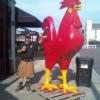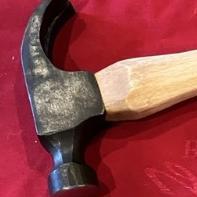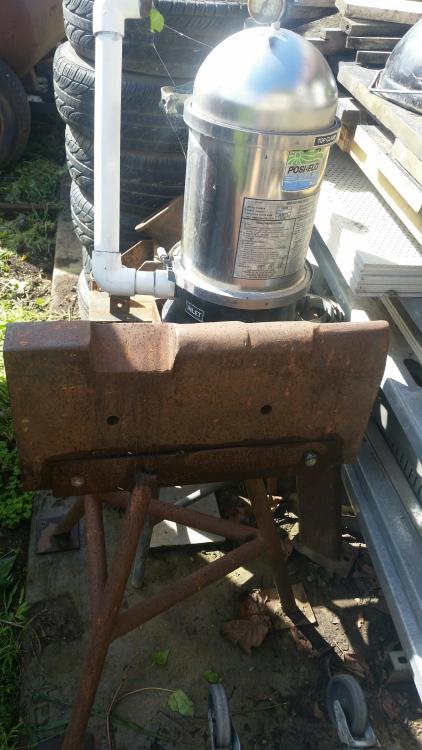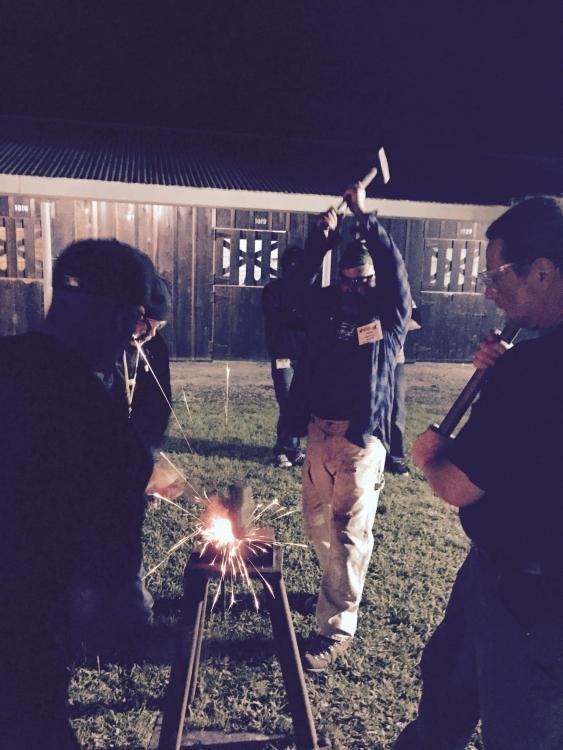-
Posts
1,562 -
Joined
-
Last visited
Profile Information
-
Gender
Male
-
Location
Salinas, California USA
Converted
-
Location
Salinas CA USA
-
Interests
blacksmithing of course
-
Occupation
Union Carpenter
Recent Profile Visitors
16,058 profile views
-

Bradley Strap Hammer Identification
clinton replied to blacksmith steve's topic in Power Hammers, Treadle Hammers, Olivers
Get yourself some Kroil penetrating oil from Kanolabs. Amazing stuff. You can use a jackshaft to get the rpm that you want easier to find a couple of sheaves than the motor Clinton -

Bradley Strap Hammer Identification
clinton replied to blacksmith steve's topic in Power Hammers, Treadle Hammers, Olivers
Hey there blacksmith Steve I do have the spec sheet for the cushions. I will get it to you no problem. And to answer your question about finding a source for the cushion no I did not find any. I did however talk to a gentleman named Phil That is very knowledgeable about power hammers and his advice was to make them using Polyurethane either casting them using a mold or using rod and freezing it then machine on a lathe. Good luck with your hammer looks to be in good condition, myself I would just try to get it going without a total teardown if it turns free it should work just fine. -
Michael next time get your hammer up, as soon as you strike raise your hammer. See how I have the hammer raised? You have to get it up to get in rhythm and stay in rhythm. I am probably not the best teacher but I do try at least. Tom Clark was very good at teaching people to strike in a team like this. He was good at lots of other things as well.
-
That should work just fine. I came in 2 1/2 inches with my hardy hole. I added a 1 inch thick plate under the striking anvil so I would have room to weld on the tube steel legs. With the wide body you should have room to weld the legs direct to the anvil. I filled the tube steel legs with oil soaked sand per Brian Brazeal method. He said "Striking anvil" Frosty not forging anvil
-
I would stay away from that anvil. According to Mr. Postman the Columbian anvil has a recessed triangle with a raised C. What I am seeing is a raised triangle with a recessed C. I would do a rebound test for sure. Info from Anvils In America pg. 213 It looks like a good anvil cast base obvious
-
It looks like someone added a new face to that anvil. I see what looks like a weld all the way around, welded then ground down. Maybe I am seeing things. How is the rebound and ring?
-
The angle is used for forging it is the bottom die, your hammer is the top die. And yes mild steel works just fine, red hot metal is much softer and will move when forging. If you are refering to the striking anvil that Alec uses it has a much different use.
-
Use a longer piece that you can hold onto. Forge the end to make your music note being carefull not to break it from the parent stock. Once the forging is close you can remove it from the longer bar. Check for vidieos of Brian Brazeal forging rings and you will see the method.
-
I built a "Brazeal type" anvil like the one in the picture they work very well with little to invest. Use a cutting torch to rough in the shape and then grind smooth
-
I doubt if any "Collector" of anvils would paint one tike that. You will spend hours trying to remove that paint and will never really get it all off without sandblasting (That I do not recomend) There could be weld repair under that paint I would use a wire wheel on an angle grinder to check the condition of the face at that price. At $1.00 a pound I would take it as is.
- 12 replies
-

striking anvil
clinton replied to Ethan the blacksmith's topic in Anvils, Swage Blocks, and Mandrels
I used a drill press, cutting torch, die grinder and a flat file to make the hardy hole in my striking anvil. Basher- the smaller striking anvils are handy when you want to move them, one man and a hand truck and away you go. Mine weighs around 150 pounds after filling the legs with oil sand. And the mild steel is forgiving for all those late night drunken nail- heading sessions. My anvil had several good dings in it after the midnight madness at the CBA spring conference.





.thumb.jpg.1556ee611e0a1424adb9279c30a718db.jpg)